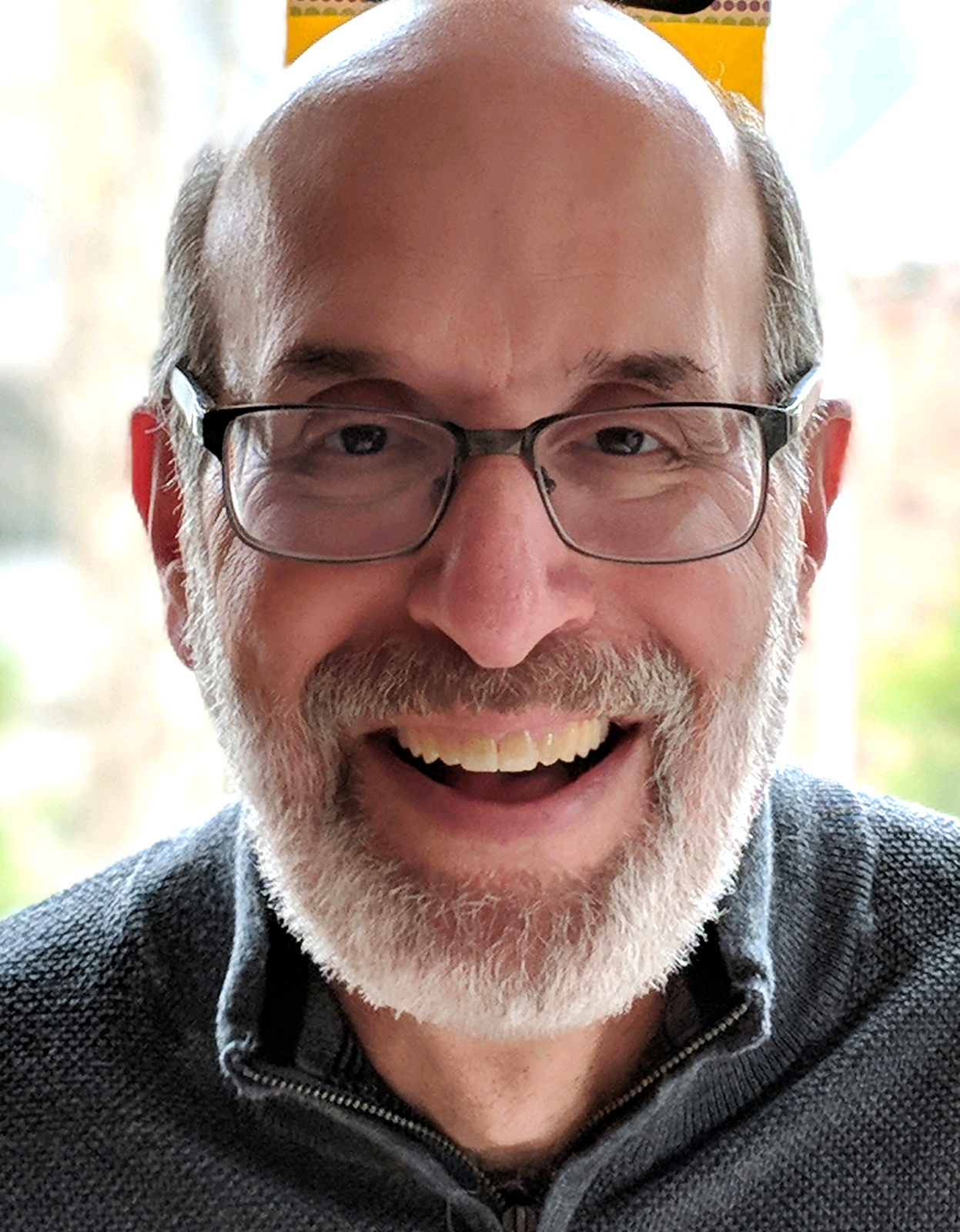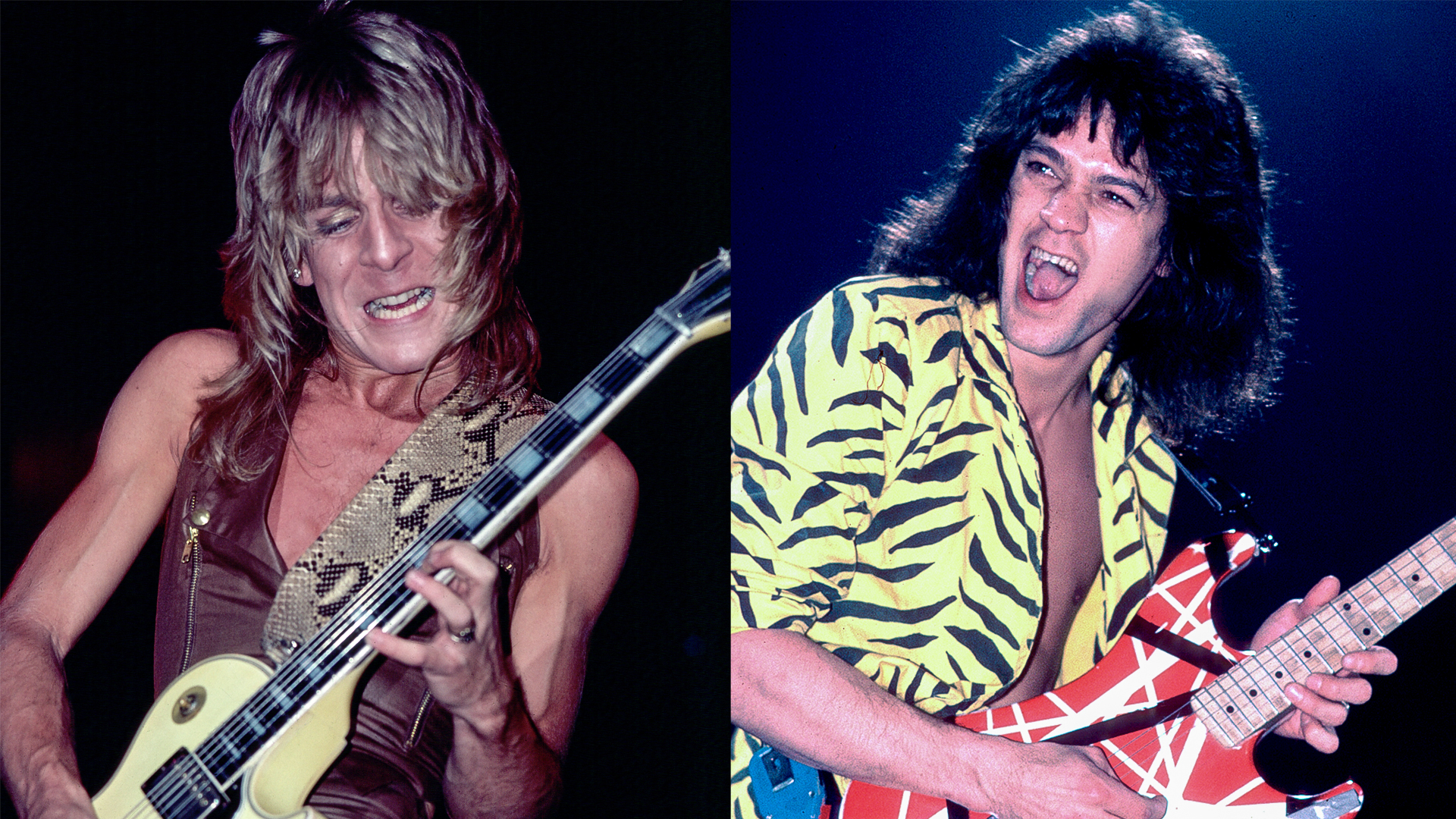"He was full of Glen already. And that’s his normal, everyday dress — glam." The reunited Alice Cooper group needed a guitarist as unique as the late Glen Buxton. They found him in Gyasi
Says producer Bob Ezrin, “We have an Alice Cooper group, not with Glen Buxton but with somebody who honors him and brings his own style and ideas to the music"
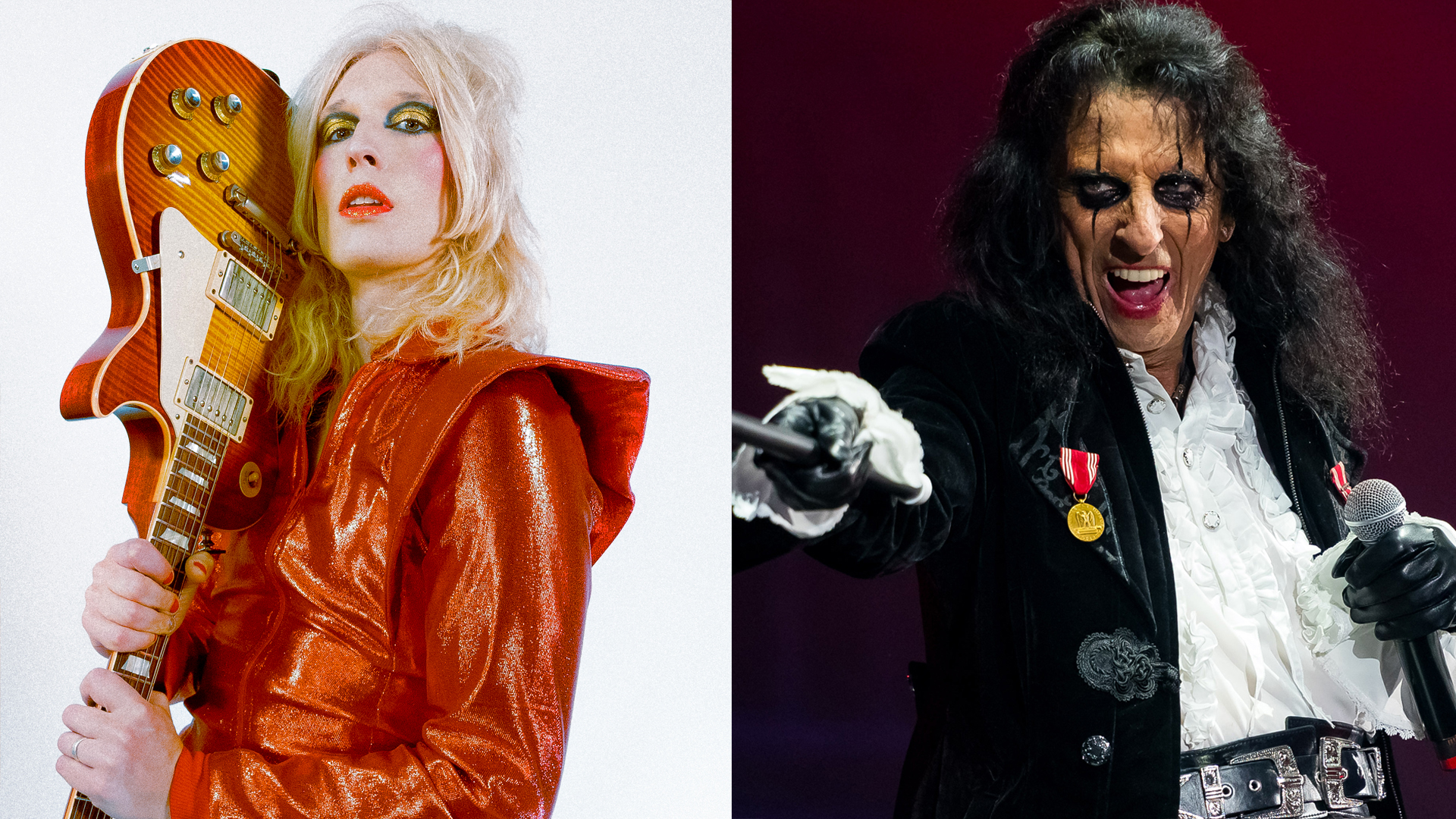
All the latest guitar news, interviews, lessons, reviews, deals and more, direct to your inbox!
You are now subscribed
Your newsletter sign-up was successful
Gyasi Heus acknowledges that stepping into the late Glen Buxton’s shoes in the Alice Cooper band “was not on my bingo card whatsoever. It kind of fell out of the sky into my lap.”
But the Nashville-based guitarist and bandleader — who plays lead electric guitar on the upcoming The Revenge of Alice Cooper (out July 25), the first full album by the original band since 1973’s Muscle of Love — is not complaining about that at all.
“I was totally thrilled to be a part of it and get to work with such and iconic band and to communicate musically together,” Gyasi (pronounced JAH-see) tells us. “It’s super surreal, just an incredible honor to get to work with these guys.”
Ironically, though — and despite a decidedly glam image as a solo artist — Gyasi says he was “not directly” influenced by the Cooper band or Buxton as a developing player.
“My number one North Star is Jimmy Page,” explains the 35-year-old guitarist, who was raised in rural small-town West Virginia and began playing on a guitar his parents bought for him at a local flea market when he was six years old. His path led him from teenage bands to the Berklee College of Music, where he studied jazz on scholarship, and ultimately to Nashville — where he’d done some session work while at Berklee — since 2017.
“At 13 I was given a live Led Zeppelin CD and it just blew my mind. It was everything I’d liked previously, but on 10. It just pushed everything further than I knew it could be pushed,” says Gyasi, who’s released five records, though only two he considers “proper” — including Here Comes the Good Part, which came out during February — as well as a live album.
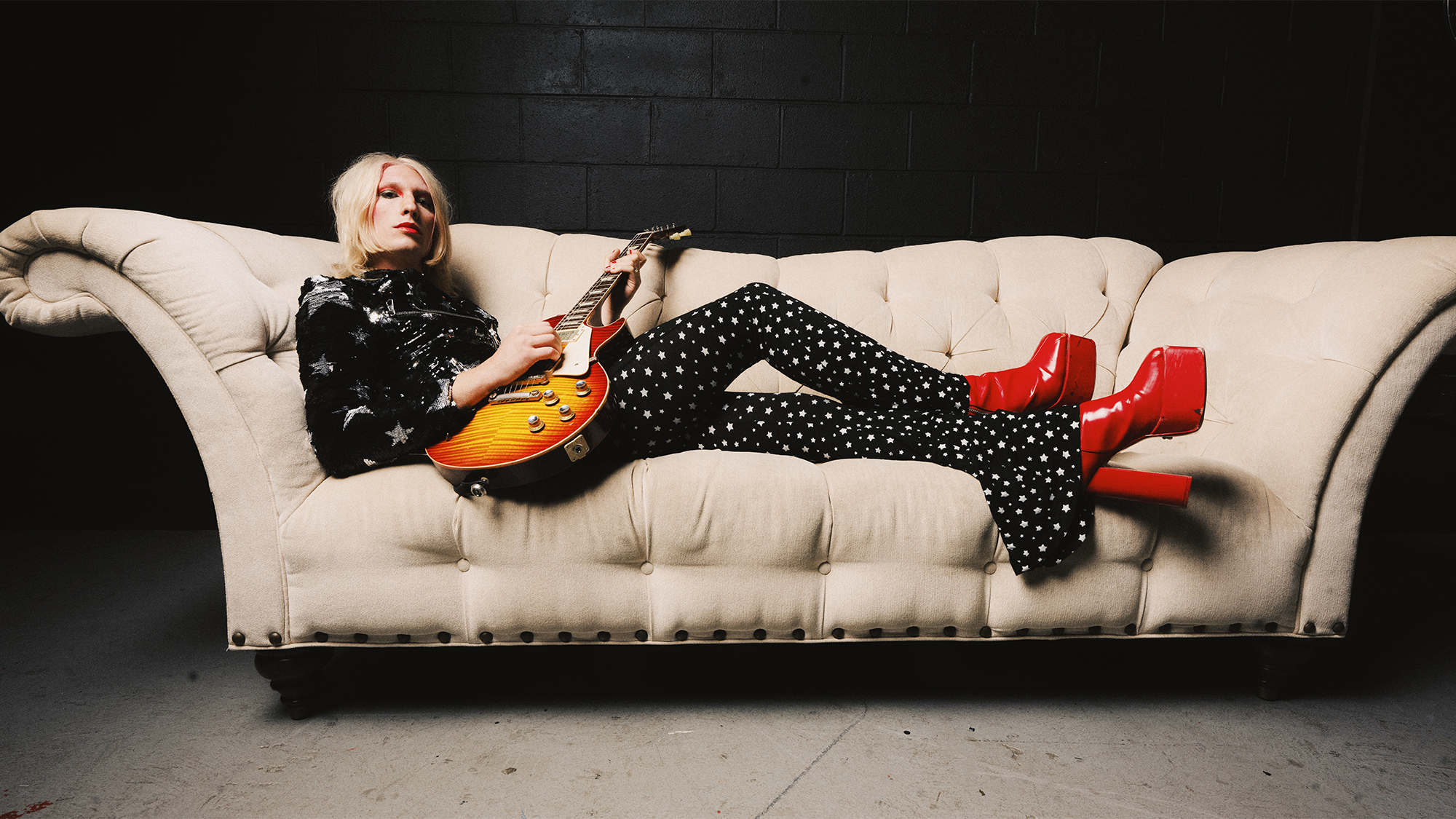
“I was really into early blues music and the Yardbirds as well, so Zeppelin became my thing and I spent years studying Jimmy Page and learning all the different live versions of those songs. That turned me from being a kid who played guitar onto the path of becoming a musician, being a real guitar player.”
All the latest guitar news, interviews, lessons, reviews, deals and more, direct to your inbox!
When it came to Alice Cooper, meanwhile, Gyasi “knew the main songs — ‘I’m Eighteen,’ I loved ‘School’s Out,’ these great rock and roll song that were always on my periphery. But it was never a band I really went deep on.”
However, two months before Gyasi received a call from longtime Alice Cooper producer Bob Ezrin for The Revenge…, he’d purchased a cassette tape version of Alice Cooper’s Greatest Hits from 1974 at a yard sale, which provided a revelation. The compilation features the original lineup of Cooper, guitarists Buxton and Mike Bruce, bassist Dennis Dunaway and drummer Neal Smith.
The riffs, the guitar playing just caught my ear much more than it ever had before. So I really came to appreciate it. Then I got the call…”
— Gyasi
“I wore that tape out,” Gyasi says. “I felt like Alice Cooper is underrated — at least to me in my world. Man, what a great band. The riffs, the guitar playing just caught my ear much more than it ever had before.
"I think Glen is a hugely underrated guitar player; the parts are so right, and maybe that was part of the reason I had overlooked it before and not really noticed it, because it was so perfect and almost doesn’t stand out as, ‘Oh, wow, what a flashy, exciting guitar player.’ But you take that away and you lose the whole song. And then Glen and Mike were just a perfect team.
“So I really came to appreciate it. Then I got the call…”
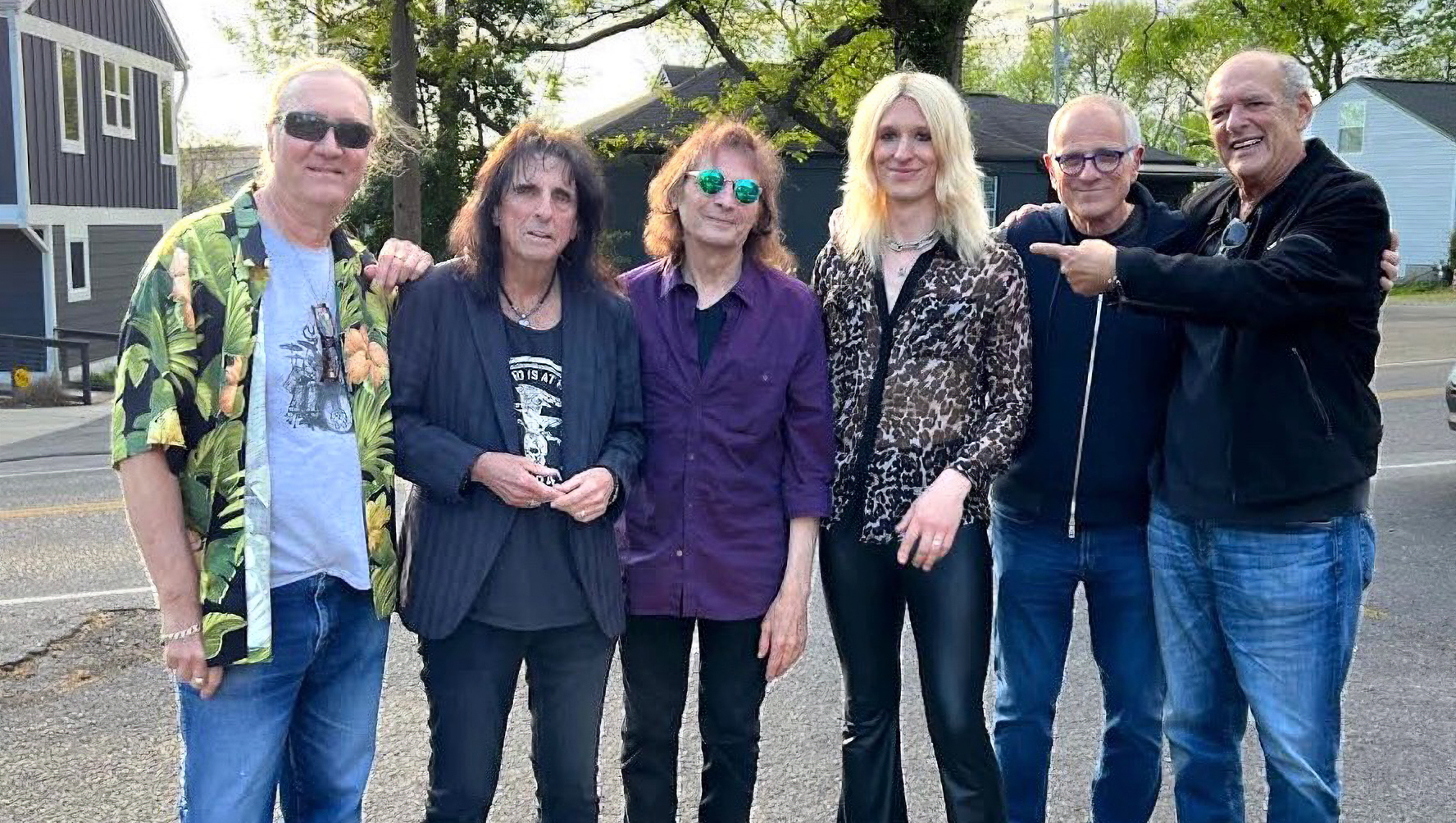
Gyasi was recommended to Ezrin by Mike Grimes, owner of Grimey’s New & Preloved Music in Nashville, after recording had commenced on The Revenge… The producer and the band knew they had big shoes to fill.
“Glen was unique and different from any other guitar player I’ve ever worked with,” says Ezrin, whose long tenure with Cooper includes the breakthrough Love It to Death in 1971 and the three albums that followed.
“Sometimes he was so off the wall it was hard to know where the notes were coming from, and sometimes so spot-on that all of us would look at each other and just nod and say, ‘That’s our Glen.’”
Appropriately, the new album from the regrouped Cooper band includes a song created from one of Buxton's unused riffs. Dunaway found it on one of his old work cassettes and left it to Ezrin to extract and clean it up. The result is "What Happened to You?" and it's a reminder of the power Buxton delivered through his riffs.
Early on he started playing some really cool guitar lines, and the guys were looking around going, ‘That’s kinda great!’”
— Bob Ezrin
“‘School’s Out’ is his riff, and the song virtually wrote itself from the moment he played it," Ezrin notes. "But he was also the guy who would play his guitar with a spoon and make space noises. We needed somebody who could fill in on the Glen side of the equation.”
When Gyasi came to the studio to audition — on the cover of the Yardbirds’ “I Ain’t Done Wrong” that’s on The Revenge… — Ezrin says “he was full of Glen already, and that’s his normal, everyday dress — glam.
"And when he played with the band — just two songs to see if there was chemistry there and whether the sound was reminiscent of the original Alice Cooper group.
"It was. He fit right in. Early on he started playing some really cool guitar lines, and the guys were looking around going, ‘That’s kinda great!’”
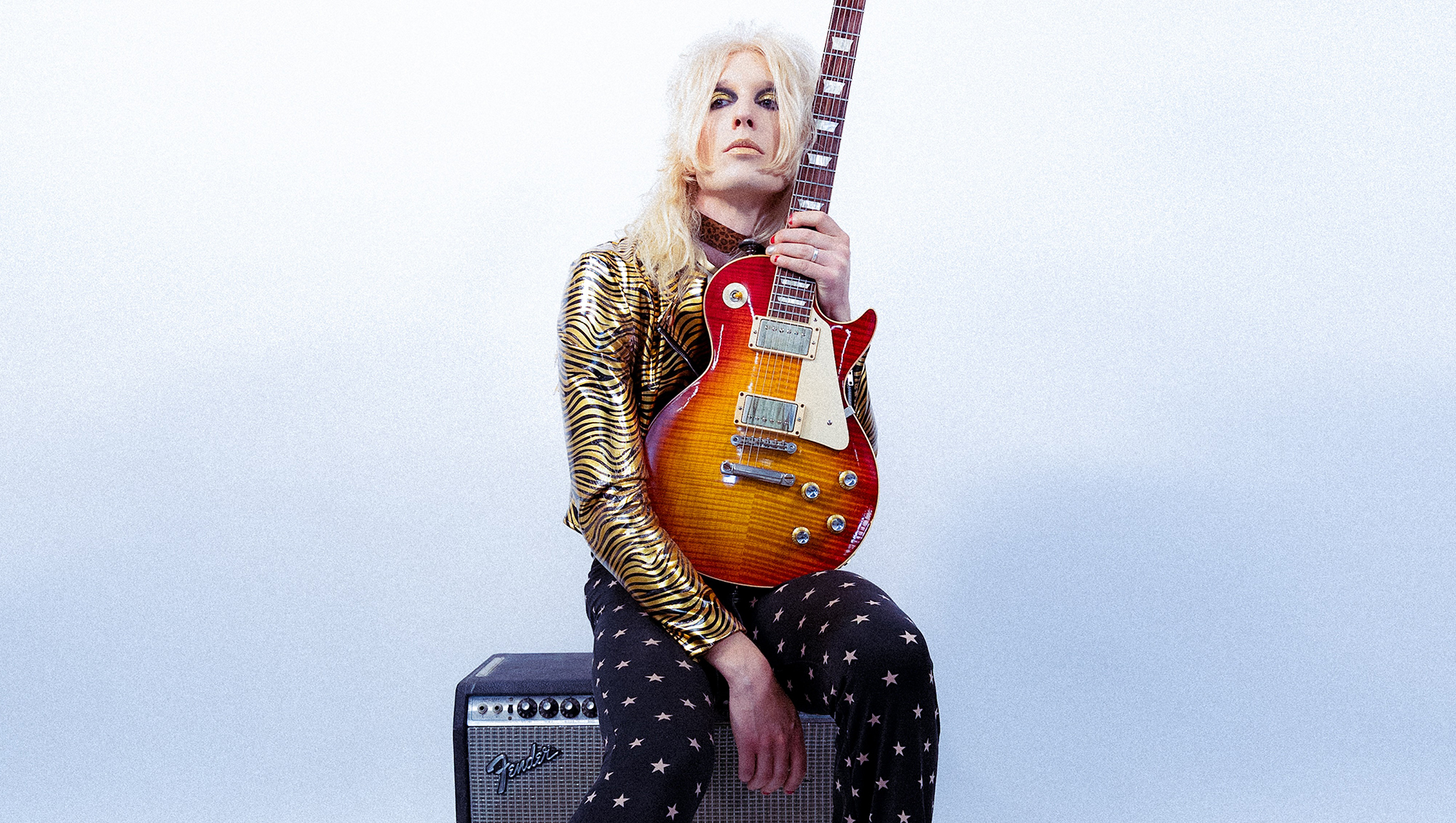
For his part, Gyasi took a sanguine approach to playing with the Cooper gang. “Just to be invited into the room was enough for me, to have any part in it whatsoever. I didn’t feel like I had an immense pressure to try too hard,” he explains. “The idea was if it works, it works, and if it doesn’t I’m sure they can find a guitar player who will work.
"It was really just about the musical communication; these guys have been playing together since high school, so I knew I couldn’t force anything. It had to be natural.”
And that it was, according to Ezrin.
“We have an Alice Cooper group, not with Glen Buxton but with somebody who honors Glen Buxton and also brings his own style and ideas to the music as well. That’s added an extra layer for us, given us an extra color and a different kind of depth.”
That first session remains a treasured memory for Gyasi, too.
It was really just about the musical communication; these guys have been playing together since high school, so I knew I couldn’t force anything. It had to be natural.”
— Gyasi
“We were kind of set up in a circle and I was directly across from Dennis,” he recalls. “We were working on something, I think it was the Yardbirds tune, and he had this one part and said, ‘No, I think I want to try something else,’ and then he worked out this other part that was a super-fast, really amazing bass part.
“That’s rock and roll right there, y’know? It was so cool to be sitting across from Dennis Dunaway and see him come up with this amazing bass line and play it. It was creative and kinda technically interesting but also sounded great and added so much energy to the song.
“And Neal was really great, too. He was set up to my right, and that Yardbirds tune has this whole long, drawn-out part where the bars get lost and it was all done basically by feel, all eye contact, and we were able to just feel it and get back on the beat together. You could tell these guys were the real deal and still got it, 100 percent.”
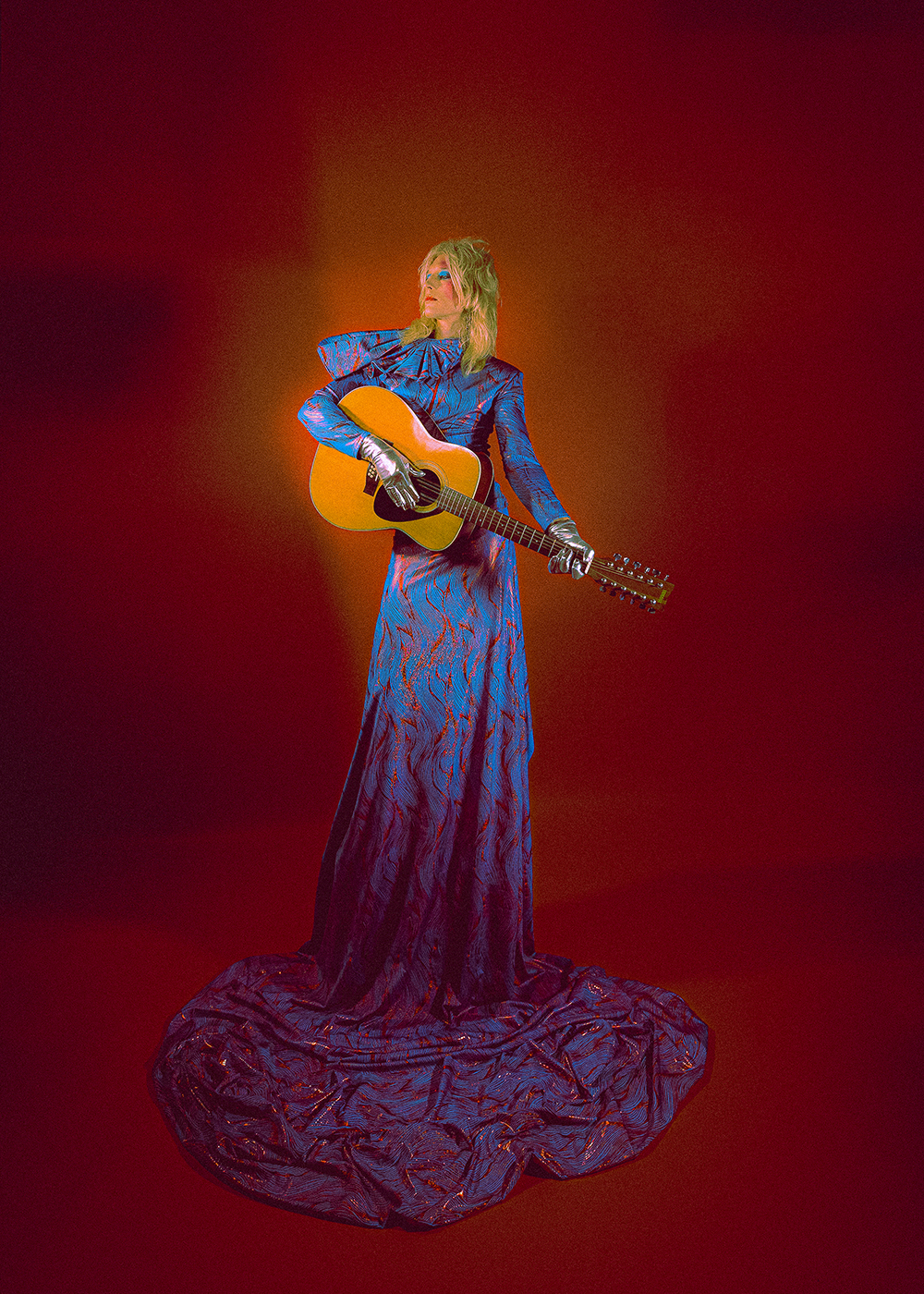
Despite the lead guitar role, meanwhile, Gyasi viewed his responsibility more as “supporting these guys and filling that role with the spirit of making great music together. I wasn’t trying to sound like Glen Buxton; it was more the spirit of making rock and roll with these guys and filling the role they needed in order to play together and approach it mostly from my voice as a guitarist. And because of my history and where I come from, we all speak the language of rock and roll music.”
For The Revenge… Gyasi used mostly his own gear — a Gibson Custom Shop ’60 Les Paul Reissue R0 as well as a Firebird and an SG. “I wish I had a three-pickup SG like Glen’s,” he says, “but I did use an SG a lot on this record.” His amplifiers included Marshall Plexis (both 50- and 100-watt models), a Fender Deluxe Reverb and a Fender Bassman.
“I wasn’t trying to get Glen’s exact tone, but I was trying to get a tone that made sense with the music,” he notes. “I was working with Bob, so we’d throw ideas around and set things up, either, ‘Great! That’s perfect!’ or ‘What if we tried this’ or that.”
Every track on the album was an enjoyable adventure, Gyasi says.
“Most of all the songs were well-written, and there were some really great twists and turns in some of the songs where they took some unexpected moment. There was a theatricality to them that was really fun to orchestrate, really fun moments where you can tell, ‘Oh, that’s gonna be a fun solo.’
I wasn’t trying to get Glen’s exact tone, but I was trying to get a tone that made sense with the music.”
— Gyasi
“I didn’t write any solos in this record; it’s all just played in the moment, which is how I work. That was probably the most fun. It was really about responding to the music and trying to add to the songs and fill that role of, ‘What does this song need?’
“Just coming in and getting on the same page and trying to be right there with them was amazing.”
Like the rest of the world, Gyasi is waiting to hear about what comes next as The Revenge… nears release — particularly the possibility of live dates with the band, which are still being considered and determined. In the meantime he has plenty of work of his own, including live dates booked into the summer and a hoped-for resumption of a weekly residency at the Nashville club the Electric Jane.
“It feels like I’ve been doing this for a really long time,” he says. “It’s such a hard business to succeed at, to make money in. I feel pressure, for sure, at my age to move this stuff along. And this helps, for sure.”
Gary Graff is an award-winning Detroit-based music journalist and author who writes for a variety of print, online and broadcast outlets. He has written and collaborated on books about Alice Cooper, Neil Young, Bob Seger, Bruce Springsteen and Rock 'n' Roll Myths. He's also the founding editor of the award-winning MusicHound Essential Album Guide series and of the new 501 Essential Albums series. Graff is also a co-founder and co-producer of the annual Detroit Music Awards.
